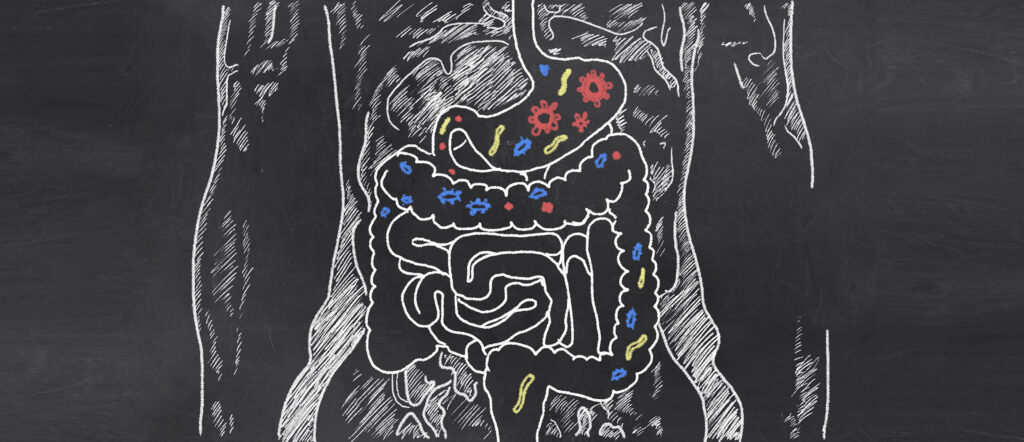Blog
Home > About Us > Digestion and Aging – Tips to Maintain a ‘Healthy’ Relationship
Digestion and Aging - Tips to Maintain a ‘Healthy’ Relationship

Aging comes with a lot of changes, some of which are discussed and talked about openly, and some become a topic of hide-and-seek games. The digestive system is no exception to this rule. When we get older, our digestion slows down and becomes less efficient. It’s essential to understand how this happens so that you can take tips to Maintain a Healthy Relationship with your digestive system in old age.
How Does Aging Affect the Digestion?
As we age, our body changes and so changes our digestion patterns. Even though digestive issues can happen at any age, there are several digestion problems that become more prevalent as you age. Digestion is a complex process that involves the entire digestive system but the digestive acids in the stomach produce less with aging, and hence indigestion could become a more serious issue. This can make it more challenging to maintain good health and prevent digestive problems in older adults.
How can you improve digestion in old age-
As we grow, our digestive system becomes weaker and the problems increase every since and then. If left untreated long enough, these pockets of the habit of stagnation or indigestion could cause severe damage beyond just making digestion difficult; some doctors even say this damage could lead directly toward cancer formation later down the road!
The following tips can help you improve digestion in old age and maintain a healthy relationship with your stomach:
1) Fibrous diet to the rescue
According to a study, fiber is a nutrient derived from plants that lower the risk of metabolic illnesses by promoting the diversity and proliferation of healthy bacteria in the gut.
Because fiber “greases” your digestive tract, a high-fiber diet leads to optimal digestion. Another advantage is that most high-fiber meals are typically naturally low in fat and help you feel satiated for longer, which encourages you to eat less and maintain a healthy weight.
2) Hydration is the key
Constipation, which is more typical as we age, can be made better by drinking water and other liquids like orange juice with pulp. By softening and adding volume to feces to make them easier to transit through the digestive tract, liquids and fiber together promote good digestion.
3) NO to Alcohol
Your microbiota may also be badly impacted by excessive drinking. Recurrent alcohol consumption is connected to gastritis, an inflammation of the gut that causes irritation. Heartburn, ongoing discomfort, ulcers, and bacterial infections can all result from such inflammation.
Additionally, excessive drinking is linked to intestinal inflammation, which is an indication of a bad gut. According to research, this form of inflammation can upset the microbiota’s balance and change how well it functions.
4) Don't smoke
Smoking is terrible for your health. It can damage your lungs and heart, as well as cause cancer and weight gain. Smoking also affects the digestive system by decreasing the motility of the intestines, which can lead to constipation or diarrhea.
5) Rainbow is good – even for your plate
As people age, their risk of developing colon and rectum cancers rises. Consuming fruits and vegetables could lower that risk. Fruits and vegetables with greater color have more antioxidants than those without. So, it is advised to eat lots of leafy greens, sweet potatoes, bananas, blueberries, and strawberries to help prevent constipation. This could be the best digestive health solution.
6) Probiotics are a pro in improving digestion
Natural organisms known as probiotics are comparable to the beneficial bacteria in your stomach. By creating molecules that combat viruses and infections, probiotics are thought to support good digestion. B vitamins, which you require to digest food, are also produced by probiotics. Some elderly individuals are more prone to B12 deficiency and may gain advantages from eating probiotic-rich meals.
7) Manage your weight
- If you are overweight, lose weight.
- If you are underweight, gain weight gradually over time.
- Eat a diet rich in fruits and vegetables, whole grains; lean meats (legumes and fish); low-fat dairy products like milk or yogurt; and whole eggs. Limit your intake of saturated fats from meat, cheese, butter, and shortening because these foods increase the risk of heart disease and stroke.
8) Get plenty of sleep
Getting enough sleep is one of the most important things you can do to maintain your health and digestion. When we don’t get enough sleep, our bodies can’t repair and grow properly. This means that our cells aren’t getting all the nutrients they need to function correctly, which leads to weakness and frailty in other areas of our body.
9) See your doctor regularly
Make sure that you have a primary care physician who is trained to manage any health issues you may have, such as high blood pressure, constipation, liver issues, or diabetes. Doctors are also trained in stress management, which can be extremely important for older adults who may experience changes in their lifestyle as they age (such as changes in their eating patterns).
With growing age, our digestion changes and may require additional care to keep it running smoothly. This can be especially important for people who are experiencing digestive issues or have been diagnosed with an earlier-stage condition such as celiac disease or irritable bowel syndrome (IBS). Dr. Vijaykumar C Bada is an experienced gastroenterologist taking care of all the gastro and liver-related issues that one faces. He is well equipped and trained with modern treatment methods to give the best possible cure. You can also consult the doctor online for a second opinion.
If you are reading this here, Have a Healthy Digestion!
